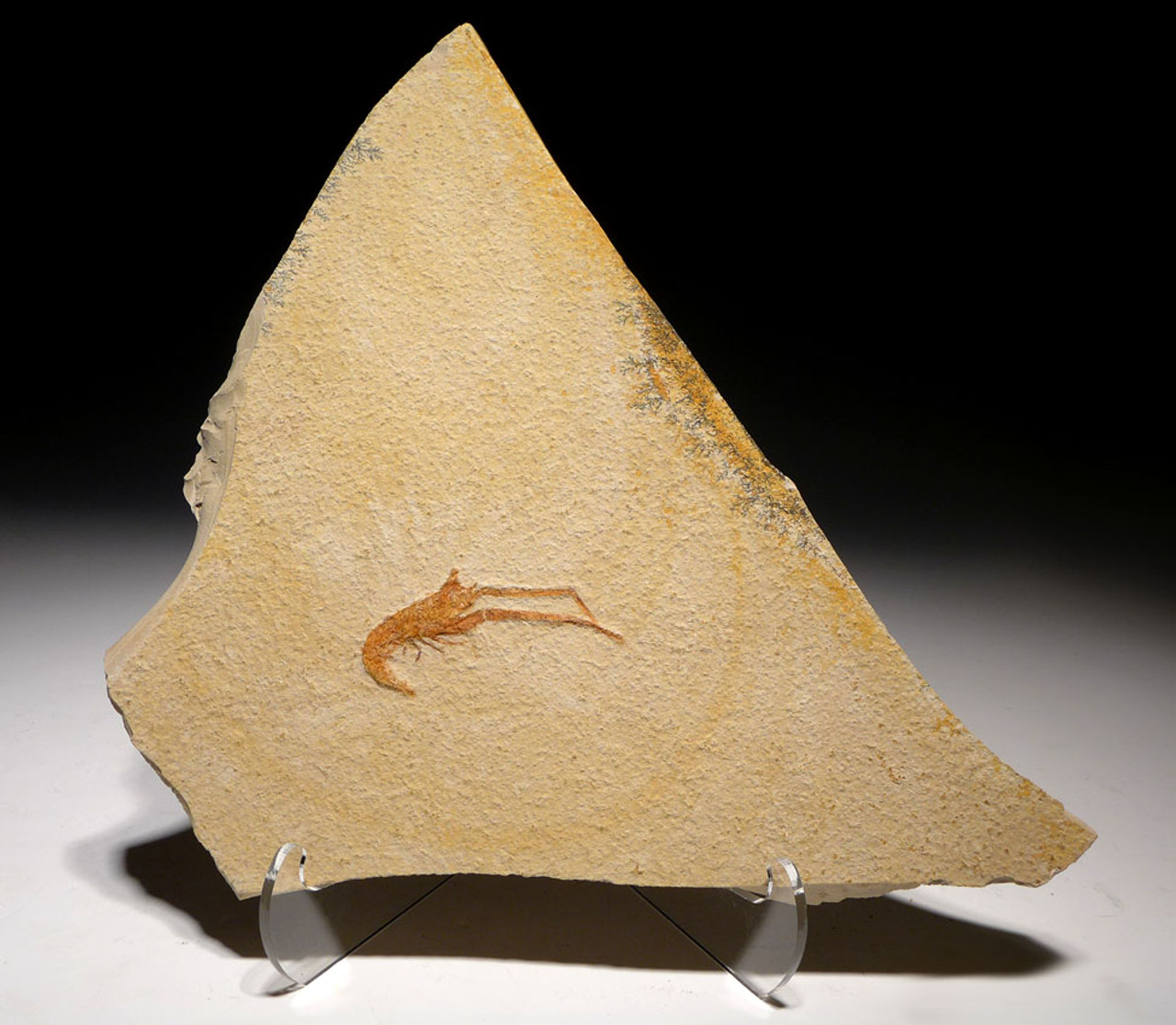Product Description
ID
|
Mecochirus longimanatus
|
||
FOUND
|
Solnhofen Limestone
|
||
AGE
|
UPPER JURASSIC (MALM):
|
||
SIZE
|
15.75" x 10" overall,
|
||
CONDITION
|
NO REPAIR TO PLATE
|
||
NOTE
|
NICE EXAMPLE ON AN UNBROKEN PLATE
|
||
INCLUDES STAND - Actual Item - One Only
|
|||
This Mecochirus longimanatus displays details that are the hallmark of this species, its long first set of arms. These first arms would have been used to dig itself out of the sand and move itself backwards as it crawled on the bottom of the ocean floor. It most likely would have also raised them up in defense to ward away possible predators eyeing it as a tasty snack. The slab the fossil is on is the original slab to this fossil and has NO REPAIR OR FABRICATION.
Mecochirus longimanatus is an extinct member of the diverse group of arthropods called DECAPODA. Decapods comprise lobster, shrimp, prawns and crabs. The majority of Solnhofen crustaceans are shrimp such as Aeger sp.. Lesser crustacean fauna of the decapods are classified as REPTANTIANS. Reptantians include crayfish, lobster and crabs and are identified by the first of the three pairs of pincered walking legs, being the largest. Eryma is not a shrimp but is classified as a lobster and is the oldest true lobster. Lobster, shrimp and prawns all possess an elongated, segmented body with a flexible carapace covering the thorax and head. Other basic traits are the presence of multiple pairs of limbs and a fan-like tail. Because of the lightness and loose articulation of a decapod's carapace, intact preservation of the entire creature is quite rare and the abundance of the animal in the fossil layers is most often represented by partial or poorly preserved specimens.
Famous for producing an astonishing diversity of rare and most intricately preserved fossils found anywhere in the world, the Solnhofen Lithographic Limestone Formation of Solnhofen and Eichstatt in southern Germany are legendary. Specimens like this are true investments as quality specimens and source deposits rapidly continue to become depleted.
 US DOLLAR
US DOLLAR
 EURO
EURO
 AUSTRALIAN DOLLAR
AUSTRALIAN DOLLAR
 CANADIAN DOLLAR
CANADIAN DOLLAR
 POUND STERLING
POUND STERLING






